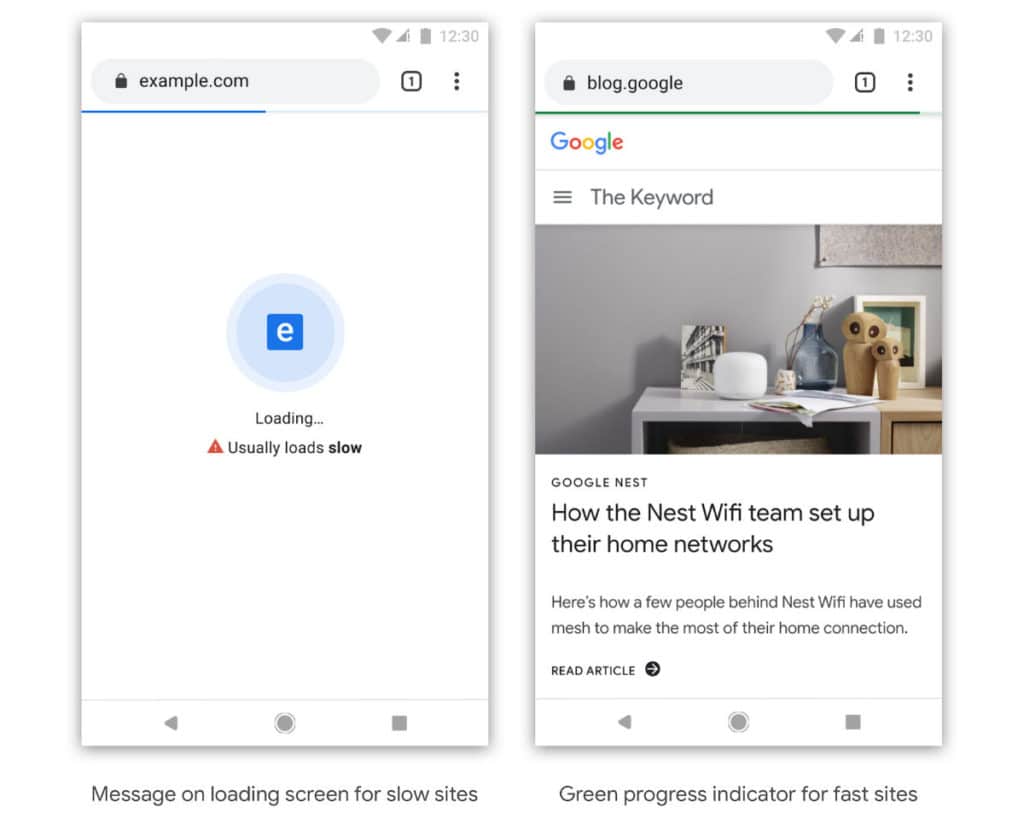Page speed has already been identified as a signal used by search engines which impacts your SEO and performance on the Search Engine Results Page. Now, Google wants to go further and shame slow-loading pages with badges. This change is actually brought forward by the Chrome team, who are attempting to identify pages that will load both slowly and quickly in Google Chrome.
In the future, Chrome may identify sites that typically load fast or slow for users with clear badging. This may take a number of forms and we plan to experiment with different options, to determine which provides the most value to our users. – Chromium Blog
The Chrome team is experimenting with multiple “surfaces” like loading/splash screens, progress bars, and context menus for links. This means that not just text information and static badges, but also differentiation in loading animations and bars. An example comparison between slow and fast pages on a mobile device can be seen below:

Comparison example between slow and fast loading pages
Speed Shaming Badges and SEO
Just because this is a project by the Chrome team doesn’t mean Search isn’t connected. In fact, page speed is a very important signal and managing it is part of typical SEO best practices. This badging project is in conjunction with other attempts being made by Google to better label the quality of their users’ experiences. Be sure to check out our page speed best practices, a more comprehensive overview from the Google Developers’ web.dev guide, or even the open-source Lighthouse development tool.
Of course, for a quick analysis of your own website just head over to the PageSpeed Insights tool from Google. In the end, the purpose of this badging is to “reward” fast sites and alternatively to warn users against visiting slower, less optimized sites. While this could certainly impact click-through rates, Google hasn’t identified how fast pages may be rewarded.
Google may have touched on direct search implications with their reference to context menus on links. Whether this refers to all links, or just search result links remains to be seen.

Google has many ways to shame slow pages
Beyond Page Speed Badging
This announcement by Google serves to put web developers and publishers on notice that page speed will not just continue to be, but increase as a significant search signal and critical component of a successful website. Google is determined to reward pages with fast speeds, and we should all take note. Whether your website was secured (using https) became a ranking signal in 2014, though it took 3 years before Chrome started flagging non-https sites as “non-secure”. These pages progressively account for more and more of the first-page search results every year.
One of the keys to ongoing success in digital marketing is to not just keep up to date with the latest news, but ensuring your website is maintaining best practices. Changes like this that Google makes to their products or their search algorithms are designed to improve the quality of the experience of users. Properly optimized pages with original, authoritative content that follow established best practices typically do not feel any significant effects from changes that Google implements.



